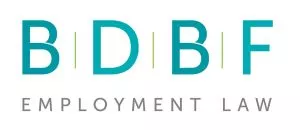It's the start of another year and thoughts naturally turn to the new challenges and adventures that lie ahead - including in the world of work. You may be thinking about looking for a new role, or perhaps a job offer is already on the horizon. In this article, Melvyna Mumunie sets out key tips and considerations for senior executives when exiting and entering a job.
The prospect of looking for a new job can at the same time be daunting, exciting and all encompassing. When you begin your search, you will be focussed on the end goal - getting the job. The road can be long and winding. However, once you finally have the job offer, for your own sake and that of your new employer's, you will want to avoid disappointment and ensure that the transition is as smooth and efficient as possible.
So, how do you leave your current employer for another with as few bumps as possible along the way? I gathered some top tips and key considerations from Paula Chan, Tom McLaughlin and Blair Wassman for senior executives looking to make the leap.
Leaving your current role
First thing's first, be clear about your obligations to your current employer. That way, you can avoid the common mistakes that many make when changing jobs. Make sure you have copies of your employment contract and any other contractual documents you may be subject to, including any relevant company policy and share or incentive plan rules.
Your notice period
Understand your notice obligations. You need to how much notice you need to give your employer before your employment will come to an end. Details of your notice period, whether you may be placed on garden leave during any notice period and how you should serve notice, will be found in your employment contract. Usually, notice of termination has to be given in writing.
If there is conflict between your notice period and the start date in your new role, all is not lost. Establish whether there is any flexibility on your start date with your prospective employer. If not, your current employer may be open to negotiating a shorter notice period. It is advisable to have this discussion with your current employer sooner rather than later to give them time to consider suitable handover arrangements.
Be aware that there is no guarantee that your current employer will agree to release you from your full contractual notice period. Your current employer may be unwilling to agree an earlier employment end date for various reasons. Often employers need exiting employees to continue in post until a replacement is ready to take over or, where an employer has the right to do so, they may keep the employee out of the market for the full duration of their notice period by placing them on garden leave.
Restrictive covenants
As a senior employee, you may be subject to restrictive covenants (also known as post-termination restrictions) in your employment contract and/or other contractual documents (e.g. share scheme rules or long-term incentive plans).
By way of example, restrictive covenants may, for a period, prevent you from:
- Working for a competitor or in competition with your current employer.
- Approaching employees in an attempt to hire them into a different role (i.e. with your new employer).
- Approaching and/or dealing with your current employer's clients, customers or vendors.
If you are subject to restrictive covenants, you should take advice on your duties and restrictions at an early stage. Do not let the matter snowball because the stakes can be high and better outcomes can be achieved all round if the matter is addressed before a dispute arises.
However, it is worth remembering that restrictive covenants will not always hold you back. Restrictive covenants are not always enforceable. They are only enforceable where they are reasonable and go no further than is necessary to protect your employer's legitimate business interests. In certain circumstances, you might be able to escape your restrictions (and notice period) altogether. This may be the case if you have been constructively dismissed. A detailed review of your role, and various other matters is required to establish the likely enforceability of a restrictive covenant and whether there is any escape route.
Make sure your prospective employer is aware of your restrictive covenants. Understanding your obligations will enable you to negotiate potential pay for the period in which you may need to stay out of the job market and/or support in relation to any dispute with your former employer about your obligations.
Negotiating a new job offer
We are often approached by clients asking: "Can I negotiate my contract?". The answer is "yes", and you are in the best position to negotiate the most beneficial terms before your employment starts. We commonly assist clients to do this in the background rather than dealing with the prospective employer directly.
Whilst some employers will not deviate from their standard form contract, this is not the case across the board. Many employers will welcome proposals and we often successfully negotiate more favourable terms for professionals joining small and large organisations.
For those looking to negotiate new employment contracts here are our top tips:
- Pick your battles. This is a new relationship. We recommend that clients pick their battles and focus on the most important elements of the deal when negotiating to get things off to a good start and maximise the prospect of securing what matters most.
- Read the small print. Some more employer friendly provisions in the contract may be hidden in places you may not expect. For example, you should check whether there is an option for the employer to make a payment in lieu of notice and, if so, whether this payment includes benefits and bonus.
- Pay attention to probationary periods. Check whether you will be subject to a probationary period and whether there is an option for the employer to unilaterally (without your agreement) extend this period.
- Do not proceed without a clear understanding of variable remuneration. As part of your job offer, you may be entitled to receive a bonus, incentives or some other form of deferred compensation. It is essential that you understand exactly what you will be entitled to, how awards will be made, and any conditions attached to them.
- Avoid relying on promises not contained in the contract. All elements of the terms of your job offer should be expressly incorporated into the contract. All terms should be clear and should avoid the employer the luxury of being able to default on promises at a later stage.
As they say, failing to prepare is preparing to fail. We regularly advise our clients on negotiated exits and new employment opportunities.
The content of this article is intended to provide a general guide to the subject matter. Specialist advice should be sought about your specific circumstances.

